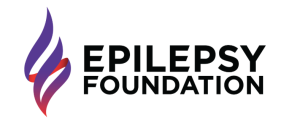Is the assumption that all those prospective donors out there share your appreciation for your cause a tactical mistake? You bet it is.
If you accept either logic or constantly tested history, you accept this reality: The typical donor has a finite amount of money to contribute to all causes. We want our share. To get it, we have to compete.
One solidly professional way to compete is to tie your “pitch” to one of the Five Great Motivators. They are:
- Fear
- Exclusivity
- Greed
- Guilt
- Need for approval
Two “soft” motivators exist — convenience and pleasure — but their power, when properly applied, lies in enhancing one of the great ones. The Great Motivators usually tie themselves to commercial marketing. Yes, these motivators positively can and do apply to the nonprofit world.
Exclusivity
In today’s hypercompetitive ambience, generating fear or guilt can require a reach beyond either logic or recognition. An appeal to greed, which for two generations has dominated conventional sales psychology, can for you cost more than it returns. A “need for approval” appeal is implicit in professional list selection, so it’s peripheral as an action-approach. That leaves exclusivity. Yes, exclusivity.
Pared to its core, exclusivity as a motivator can cloak itself in either of two mantles:
- Mantle number one: Everybody wants it. Nobody can get it. Except you.
- Mantle number two: Only you. Only from us.
A benefit to us is that not only is exclusivity the most obvious of the motivators for nonprofits to exploit: It’s the easiest. That makes it a rational weapon for smaller nonprofits competing against giants.
An exclusivity-based appeal need not require heavy production, either by mail or email. Such an appeal also lends itself to social media. Apparent sincerity far outweighs lavish use of color or sound or, for that matter, dependence on celebrities. Although, it’s the ideal vehicle for a one-to-one entreaty by a celebrity.
Emotionally, especially for nonprofit causes, exclusivity competes well against greed. Implicit is recognition, an emotional weapon we can aim and fire without worrying about moral, ethical, or legal complications. Bestowing recognition is as easy as choosing words that say to the recipient of those words, “Only you. Only from us.”
A letter to a lapsed donor might begin…
“I’m looking at the Certificate of Appreciation with your name on it and wondering why it’s still on my desk instead of your wall. Hmmm. Oops, did we forget to remind you that your 2012 Certificate is waiting for you?” Clever? Please say no. Cleverness is out of key with sincerity. Let some jazzy advertising agency inject cleverness into a parallel appeal sent by one of your competitors.
Here’s another easy possibility, an invitation that implicitly specifies exclusivity. So, “Will you honor us by allowing us to include you on our Board of Advisors? We’d be grateful. And I promise you personally, we won’t be demanding of your time except for your occasional opinion.”
Yet another way to coat a request with a sheath of exclusivity — Not one individual in 10,000 will ever see the invitation I’m extending to you today. Believe me, my friend, that is entirely on purpose. In seven very clear words: I am not contacting you by accident.
A quick final point
Easy wording and extravagant wording are out of sync with each other. Clear, clean production and elaborate production are out of key with each other. What an edge that bestows on exclusivity.
A true benefit of exclusivity as a fundraising cornerstone is that you have an appeal with a primary dependence on apparent sincerity. And the capability of projecting sincerity is why you’re involved in fundraising in the first place, isn’t it?
There are just two caveats. If you’re offering a certificate, be sure the design is of a type your prospective donor will want to frame and hang on the wall. Be sure, too, that it’s plainly dated with the year, to make renewals even easier. And if you’re offering a position on a board of advisors, once or twice a year actually ask these folks for a dollop of advice. NPT
Herschell Gordon Lewis is a professional writer who lives in Pompano Beach, Fla., consulting with and writing direct response copy for clients worldwide. He is the author of “Hot Appeals or Burnt Offerings,” an analysis of fundraising techniques. His most recent book is his 33rd, the fourth edition of his classic “On the Art of Writing Copy.” Among his other books are “Internet Marketing Tips, Tricks, and Tactics,” “Creative Rules for the 21st Century,” and “How to Write Powerful Fund Raising Letters.” His web site is herschellgordonlewis.com











